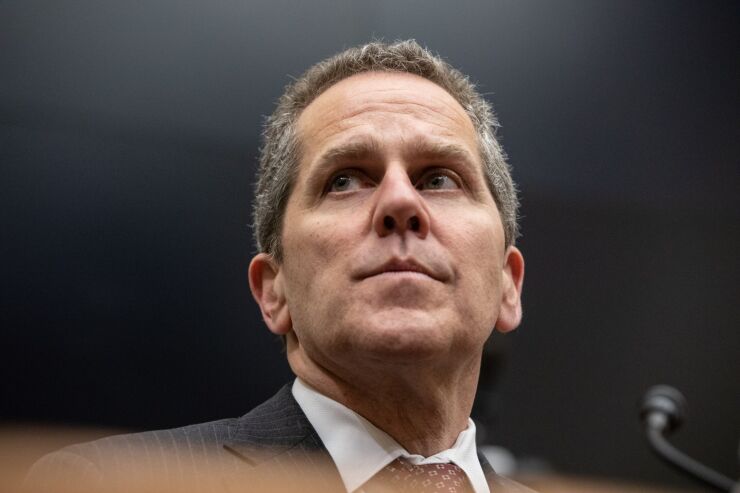
WASHINGTON — House Financial Services Committee Republicans have
The move — although it's a short bill that stands little chance against a Democratic majority in the Senate —
The bill, which has no stated sponsors, would "remove the designation of one of the members of the Board of Governors of the Federal Reserve System as the 'Vice Chairman for Supervision.'" It would do so by striking the section of the Dodd-Frank Act that sets up the position.
Republicans on the House Finance panel posted the discussion draft alongside several others that would require banking agencies to report various policymaking activities to Congress. It comes as the panel prepares to hear from senior staff at the Fed, the Office of the Comptroller of the Currency, and the Federal Deposit Insurance Corp. in a Tuesday hearing that's part of Republicans' larger anti-ESG push.

Since the regional bank crisis that enveloped the financial industry earlier this year, Republicans quickly pointed fingers at the Fed's oversight of Silicon Valley Bank, the first domino to fall in the regional bank turmoil, while Democrats have tended to blame the bank's executives.
Little banking legislation has shown promise of making it into law in the aftermath of the bank failures, with the exception of an executive compensation package coming out of the Senate Banking Committee with bipartisan support. On the House side, lawmakers have





